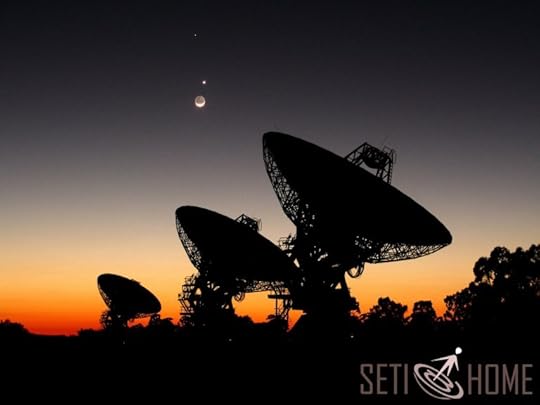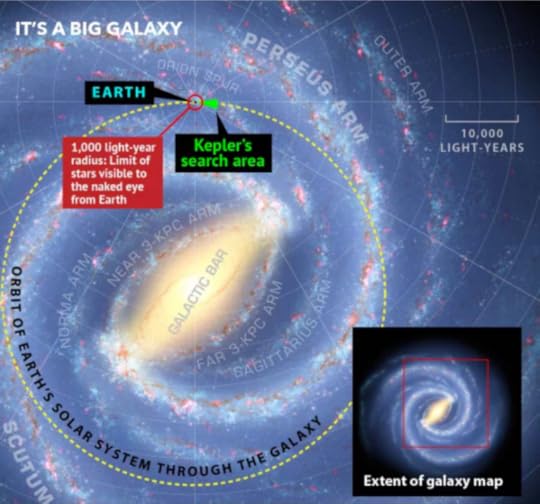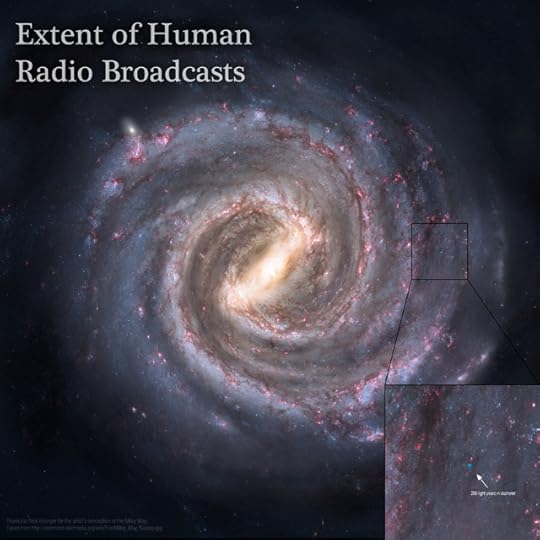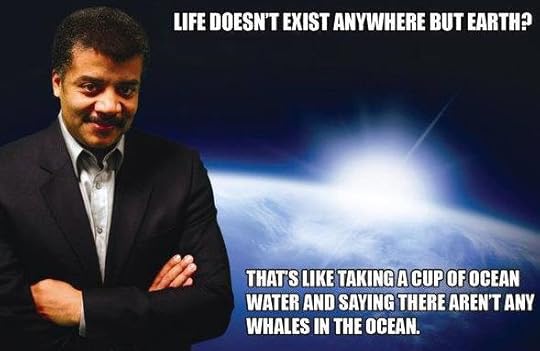Back in the 1950s, Enrico Fermi asked the question, “Where is everyone?” By “everyone” he meant intelligent extraterrestrials—aliens. But why did he ask this question?
Fermi understood the power of compounding values. He knew humanity was accelerating in its mastery of science and was being inexorably propelled toward the stars. Within that decade, the Soviets launched the first satellite and then the first human into space. In response, the Americans put boots on the Moon barely a decade later.

To those alive at the end of the Second World War, it seemed as though the future had arrived all at once. Within the span of a hundred years, humanity had gone from ignorance about microbes and hygiene, ignorance about the origin of species on Earth, ignorance about the size of the universe (we thought there was just one galaxy—ours) and ignorance about physics to banishing polio and mastery of the atom.
Fermi understood the implications of such rapid progress. For a hundred thousand years, humanity had fought for survival as just another animal species. For nigh on ten thousand years, it had struggled with a fledgling sense of culture. From pyramids to the invention of the printing press, each step forward was accompanied with bloody wars. Slowly, the enlightenment dawned. Humans began to think and reason beyond mere selfishness and greed. By the time Fermi posed his question, it was obvious humanity was undergoing exponential growth in terms of scientific accomplishment. Fermi could see where we were heading and wondered why no one else had got there before us.

Fermi looked at the stars and realized a similar intelligent species would have long ago escaped the bounds of their planet. In the same way as Europeans spread to every continent, he reasoned aliens would have found some way to spread throughout the galaxy. In the same way our last hundred years has eclipsed the last hundred thousand, he knew the exponential nature of advancement should have spread intelligent life among the stars.
Seventy years later, NASA and SETI have search vast tracts of space and all we’ve found is silence. As disheartening as this might seem, Fermi’s Paradox is still somewhat premature.
Our ability to examine the stars is in its infancy. NASA scientists are quietly confident the James Webb Space Telescope will allow us to observe life around other stars, but even if it doesn’t, it’s important to understand the context of our search—we’re looking at one tiny corner of just one galaxy out of BILLIONS of other galaxies.

There are an estimated 10^23 or possibly 10^28 stars in the visible universe (that’s not to mention what we can see is only a fraction of what’s out there), but we have little to no capability of examining individual stars in other galaxies. Not finding life in our galaxy could be meaningless. As I write in my novel Galactic Exploration, it may be that our galaxy is akin to the polar regions on Earth—barely habitable. Other galaxies may be more like the African Savannah, teeming with life, and we simply wouldn’t know it as we have no way to see that far with the level of detail required to detect life.

That tiny blue dot marks the outer bounds of human radio waves. Anyone listening for us will be waiting an awfully long time and would require astonishingly sensitive instruments.
As a science fiction writer, I’ve written almost thirty novels on the concept of First Contact. As much as I’d like to imagine First Contact could unfold with intelligent extraterrestrials, the odds are against it. The safe bet is that the James Webb Space Telescope will find evidence of microbial life in the unbalanced chemical equations in the atmosphere of some distant planet. Certainly, that’s all anyone looking at Earth over the past four billion years would have ever seen.

So where are they? They’re undoubtedly out there. Our planet is proof life can and does exist in outer space. If we’ve made it this far, others may have as well. All we can do is keep looking and listening.
About the writer: Peter Cawdron is the author of several First Contact novels including 3ZEKIEL
 newest »
newest »
 newest »
newest »
 One could use ""If a tree falls in a forest and no one is around to hear it, does it make a sound?" Because we haven't heard from any extraterrestrials doesn't mean there are no extraterrestrials.
One could use ""If a tree falls in a forest and no one is around to hear it, does it make a sound?" Because we haven't heard from any extraterrestrials doesn't mean there are no extraterrestrials.




 That tiny blue dot marks the outer bounds of human radio waves. Anyone listening for us will be waiting an awfully long time and would require astonishingly sensitive instruments.
That tiny blue dot marks the outer bounds of human radio waves. Anyone listening for us will be waiting an awfully long time and would require astonishingly sensitive instruments.


